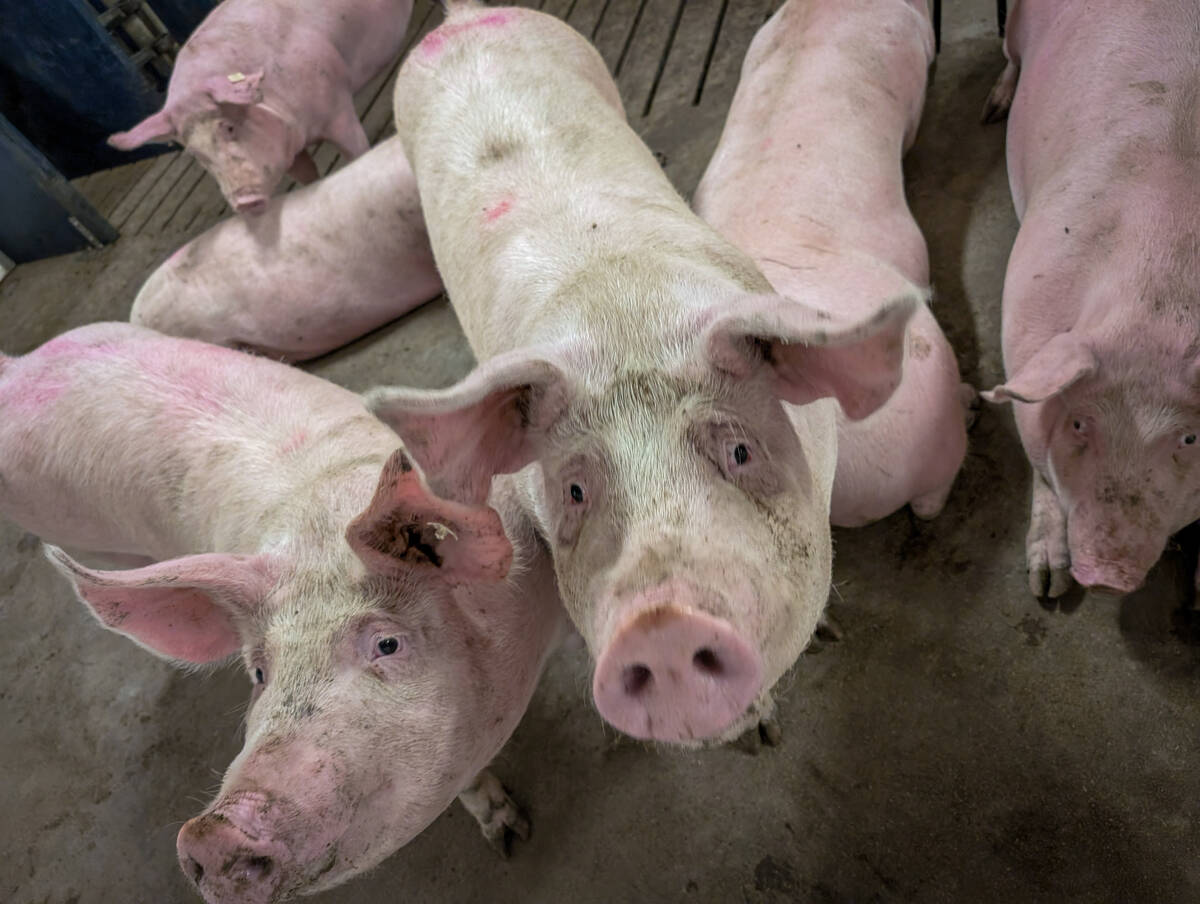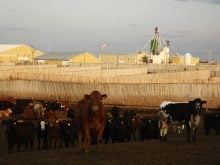Cattle producers’ livelihoods are teetering on the edge say industry leaders.
An international ban on Canadian beef following the diagnosis of single cow with bovine spongiform encephalopathy has industry groups mapping out potential scenarios to deal with market losses.
“People are worried,” said Kent Olson, president of the Alberta Cattle Feeders Association. His family operates a feedlot in central Alberta.
Feedlots normally sell fat cattle every week. If the situation continues for more than a month, plans for an orderly slaughter must be made.
Read Also

Pork sector targets sustainability
Manitoba Pork has a new guiding document, entitled Building a Sustainable Future, outlining its sustainability goals for the years to come.
“We’ve got 30 days before we get real anxious,” said British Columbia feedlot owner Bill Freding of Oliver.
There is no federally inspected slaughter plant in his province so he and other B.C. feedlots rely heavily on American customers. Most of their fattened cattle go to Pasco, Washington.
Officials and producers quickly reminded consumers the disease was detected in only one cow and point out animal byproducts are not used in their rations.
Many feedlot operators and auction yards demand letters of compliance from their suppliers verifying they do not use any animal byproducts in their feed rations said Freding.
Nilsson Bros. Inc. owns XL Beef in Moose Jaw and Calgary, as well as a chain of auction markets across Western Canada. They have had compliance requirements in place for several years, said Brian Nilsson, co-chief executive office of the company.
However, when markets collapsed, the company was forced to halt auction sales and shut down its Moose Jaw slaughter plant for at least a week. Employees are using vacation time while the Calgary plant is working at reduced capacity.
The situation is being evaluated and the two plants may alternate production if the situation persists.
Cargill Foods at High River reduced production by about 50 percent to supply the domestic market only, said company official Jamie Dolynchuk.
The company is still buying some cattle to fill its slaughter needs for that market.
Lakeside Packers at Brooks also reduced its production to meet domestic demand only. The plant closed May 21 and reopened the following day, said Tyson’s Food spokesperson Gary Mikelson.
“Because of the ban, we plan to reduce production at Lakeside to a level equal to our Canadian customers’ demand for beef. We are operating but we are operating at reduced levels,” he said.
Calgary Public Stockyards cancelled its live and internet sales for the week of May 19 but was to reopen May 27.
“We didn’t think we’d be doing anyone a service by having sales,” said Jason Danard.
The company markets cattle all over North America via its internet sales.
“If they clean it up right away the impact will not be huge, but there are so many unknowns right now, it’s impossible to say,” he said.
Concern has spread across the country.
Ontario producers are equally nervous, said Kelly Daynard, communications manager for the Ontario Cattlemen’s Association.
Most Ontario markets are open but sales numbers are down by 66 percent and average prices dropped more than 40 percent.
Financial disaster assistance programs were discussed with the Ontario agriculture minister Helen Johns,
Tony ten Westeneind of Better Beef at Guelph, said the company slowed production from its usual 9,000 head per week to service the domestic market only.
Alberta premier Ralph Klein said Alberta human resources minister Clint Dunford is working with his federal counterparts to talk about the unusual circumstances of workers laid off from meat industry.
In the House of Commons prime minister Jean Chretien said: “The minister of human resources will see what can be done for workers.”

















